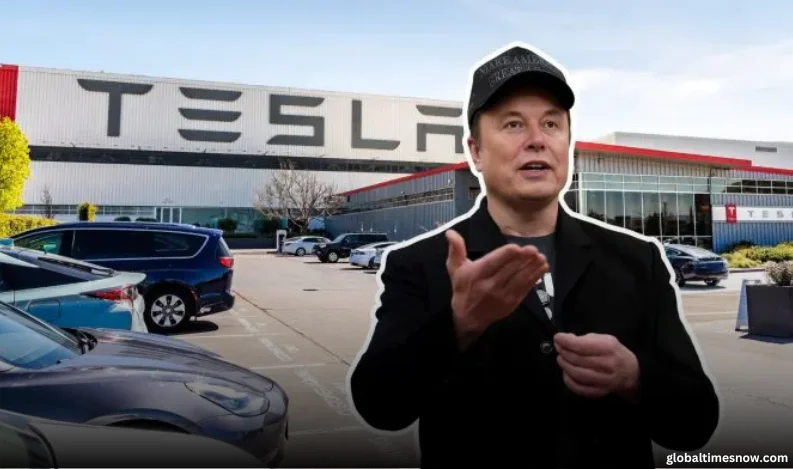New York, NY – A growing number of Tesla owners are trading in their electric vehicles (EVs) for models from other brands, marking a record high, according to a recent analysis by car shopping platform Edmunds. The report, published Thursday, indicates that March saw the highest percentage of Tesla trade-ins for new or used cars from competing manufacturers ever recorded by Edmunds. This shift in consumer sentiment follows recent political developments involving Tesla CEO Elon Musk and his role in the second Trump administration.
Declining Loyalty and Market Competition
Since January, when Musk assumed a central position in Washington under President Donald Trump, Tesla has faced a turbulent period. Investors initially boosted the company’s stock following Trump’s electoral victory in November 2024, but recent market reactions have been less favorable. Tesla’s stock price has plummeted by 42% this year amid growing uncertainty.
Industry analysts point to rising competition in the EV market as a contributing factor. Data from S&P Global Mobility revealed an 11% year-over-year decline in Tesla sales in the U.S. in January, while competitors such as Ford, Chevrolet, and Volkswagen gained market share with competitive pricing and technological advancements.
Jessica Caldwell, head of insights at Edmunds, noted that shifting Tesla consumer sentiment could benefit legacy automakers and EV startups. “As Tesla brand loyalty and interest wavers, those offering competitive pricing, new technology, or simply less controversy could capture defecting Tesla owners and first-time EV buyers,” Caldwell stated.
Political and Brand Challenges
Musk’s political affiliations and leadership in the newly established Department of Government Efficiency (DOGE) have fueled controversy. His initiatives to reduce government spending and restructure federal agencies have faced legal challenges, while his involvement in policy decisions has drawn scrutiny.
Additionally, Tesla’s brand image has suffered over the past two years. Research from Brand Finance shows Tesla’s brand value declined by 26% in 2024, amounting to a $15 billion loss—the second consecutive year of decline.
Public sentiment has also manifested in direct actions against the company. Protests targeting Tesla facilities, instances of vandalism, and arson attacks on Tesla stores, vehicles, and charging stations have been reported across the U.S.
Impact on Consumer Behavior
The Edmunds report also found that consumer interest in new Tesla models on its platform dropped to its lowest level since October 2022, following a peak in November 2024. Furthermore, surveys conducted by Edmunds in August 2024 revealed that only 2% of U.S. car shoppers were unfamiliar with Musk, highlighting the significant association between Tesla’s brand and its CEO.
While the report noted a spike in Tesla trade-ins, it did not account for cases where Tesla owners exchanged their vehicles for newer Tesla models. Tesla has not yet responded to requests for comment on the findings.
As the EV landscape continues to evolve, automakers seeking to expand their market share may find new opportunities in Tesla’s shifting consumer base.























